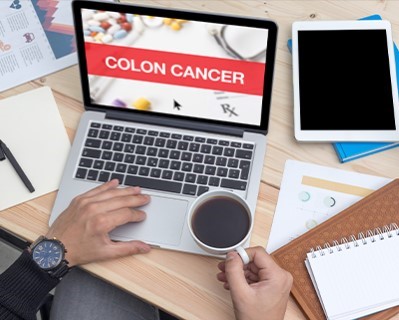Colorectal Cancer Screening
- Purpose: Detects colorectal cancer at an early, more treatable stage.
- Procedure: Various methods such as colonoscopy, sigmoidoscopy, and stool tests are used for screening.
-
Note: The information provided here applies to elective colorectal cancer screening under standard conditions. However, specifics may vary depending on individual patient factors, such as age, family history, personal medical history, or any complications that might arise during or after the screening procedure. The patient’s overall health, the type of screening test chosen, and the need for additional interventions can also influence the procedure and recovery process.
Inpatient/Outpatient
Colorectal cancer screening is typically performed as an outpatient procedure. Most screening tests, including colonoscopy, sigmoidoscopy, and stool-based tests, do not require hospital admission and allow patients to return home the same day.Hospital Stay Duration
Patients undergoing colorectal cancer screening generally do not require an overnight hospital stay. If a colonoscopy is chosen as the screening method, the procedure typically takes about 30 minutes to 1 hour, followed by a short recovery period to allow the effects of sedation to wear off. Patients are usually discharged within a few hours after the procedure. For stool-based tests, no hospital stay is required, as these tests are often done at home.Type of Anesthesia
The type of anesthesia used depends on the screening method. Colonoscopy is usually performed under conscious sedation or, in some cases, general anesthesia, to keep the patient comfortable during the procedure. Sigmoidoscopy may be performed without sedation or with mild sedation. Stool-based tests, such as the fecal immunochemical test (FIT) or stool DNA test, do not require any anesthesia.Travel After Procedure
Patients undergoing colonoscopy are advised to avoid driving and long-distance travel for the remainder of the day after the procedure, especially if sedation was used. It is recommended that patients have someone accompany them to drive them home. Most patients can resume normal activities the following day, but they should follow specific recommendations from their healthcare provider regarding travel and activity levels. For stool-based tests, there are no travel restrictions.Pre-procedure Preparation
Preparation for colorectal cancer screening depends on the type of test. For colonoscopy, patients typically need to follow a clear liquid diet and take a bowel preparation solution to cleanse the colon the day before the procedure. Specific instructions will be provided by the healthcare provider. For sigmoidoscopy, the preparation is usually less extensive but may still involve a cleansing enema. Stool-based tests generally require no special preparation, but patients should follow any instructions provided with the test kit.Procedure Duration
The duration of the colorectal cancer screening procedure varies by test type. Colonoscopy typically takes 30 minutes to 1 hour, while sigmoidoscopy may take 10 to 20 minutes. Stool-based tests are done at home and require only a few minutes to complete the sample collection.Recovery Time
Recovery from a colonoscopy is generally quick, with most patients able to resume light activities within a day. If sedation was used, patients should rest for the remainder of the day and avoid operating heavy machinery. Sigmoidoscopy also has a quick recovery time, and most patients can resume normal activities shortly after the procedure. There is no recovery time required for stool-based tests.Estimated Cost
The cost of colorectal cancer screening can vary depending on the screening method, clinic, geographic location, and whether any additional procedures, such as polyp removal or biopsy, are performed. Colonoscopy tends to be the most expensive option, while stool-based tests are generally less costly. For accurate cost information, patients should contact their healthcare provider or treatment center directly.Post-procedure Care
Post-procedure care for colorectal cancer screening depends on the test performed. After a colonoscopy or sigmoidoscopy, patients should monitor for any signs of complications, such as abdominal pain, bleeding, or fever. If polyps were removed or biopsies taken, patients may receive additional instructions regarding activity levels and dietary restrictions. Follow-up appointments may be necessary to discuss the results of the screening and any further treatment if abnormalities were detected. For stool-based tests, patients will be informed of the results and advised on any necessary follow-up steps if the test is positive.

